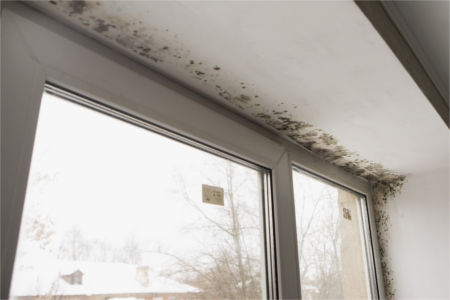How to Stop Sick Building Syndrome with Mold Investigating & Testing

Are your employees complaining about frequent sinus infections, abdominal problems, or respiratory problems? It may be time to hire a specialist who can provide mold investigation and testing services for your commercial building in Charlotte. Sick building syndrome is a very real problem for commercial buildings in Charlotte and around the country which can be addressed with mold testing and treatment.
Ever since 1986 when the WHO coined the phrase, “Sick Building Syndrome,” people have been laughing at the term. The fact is, office employees in both new buildings and old have been swearing it's a real problem for decades but feared being labeled as mentally ill. Today, we know sick building syndrome can be very real because of mold, too much humidity, lead paint, and VOCs.
If you suspect there's a problem with your commercial building in the Charleston, NC area, you'll want to know about the various testing methods to check your commercial building for sick building syndrome.
HVAC Moisture Testing
Heating, air conditioning, and ventilation systems are most likely cause of sick building syndrome. While HVAC systems are supposed to produce moisture, the water should be routed to a safe area where it can drain away and evaporate. Moisture left inside the ventilation ducts, underneath the air handler, or within the HVAC system itself can cause mold growth in these hidden areas.
Condensation lines on commercial HVAC systems should be regularly serviced to avoid moisture problems. Any leaking condensation on flooring or inside walls should be promptly and properly dried and repaired.
Professional moisture analysis and testing can quickly find the cause of your sick building syndrome problem. You can get this service from GLS Engineering & Testing, your local Charleston commercial services specialist. Our professional mold testers can perform all types of testing to get to the roof of the sick building syndrome problem.
VOC Testing
Volatile organic compounds can cause sick building syndrome as well. VOCs are gases released from everyday household cleaning products and building materials such as carpeting, pressed wood, and paint.
Methylene chloride is a common solvent which transforms into carbon monoxide when metabolized. While small amounts of harmful gases or vapors aren't enough to cause illness, many different chemicals can build up inside a commercial building to a toxic level.
VOC testing will ensure your commercial building in Charlotte is safe to spend time in. At the very least, it's worth knowing you're providing a healthy workplace for employees and a safe environment for customers or clients.
Mold Testing
Not all mold is harmful if you're a healthy individual with a good immune system and no allergies or asthma. Some species of mold, like Stachybotrys chartarum (black mold), produce mycotoxins which can be harmful to even healthy individuals.
If you own or manage a commercial building in Charleston, mold testing should be a part of your yearly building maintenance regardless of whether your employees or customers are complaining about sick building syndrome.
Lead Paint Testing
Lead paint was banned in 1978 by the federal government. If your commercial building was built before this time or went through renovations, repairs, and painting activities, the building should be tested for lead-based paint.
The dust from lead paint is invisible and toxic to the human body. If your employees or customers are exposed to toxic levels, they can develop symptoms such as sluggishness and fatigue, joint and muscle pain, mood disorders, vomiting and abdominal pain, irritability, and even seizures. Lead paint testing can be done to make sure lead poisoning isn't the cause of your sick building syndrome.
Contact Us Today For Investigation & Mold Testing In Charleston & The Surrounding Areas!